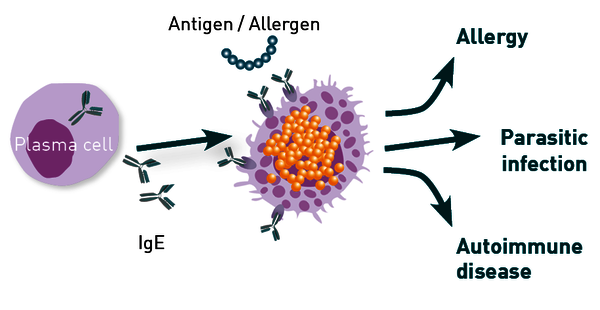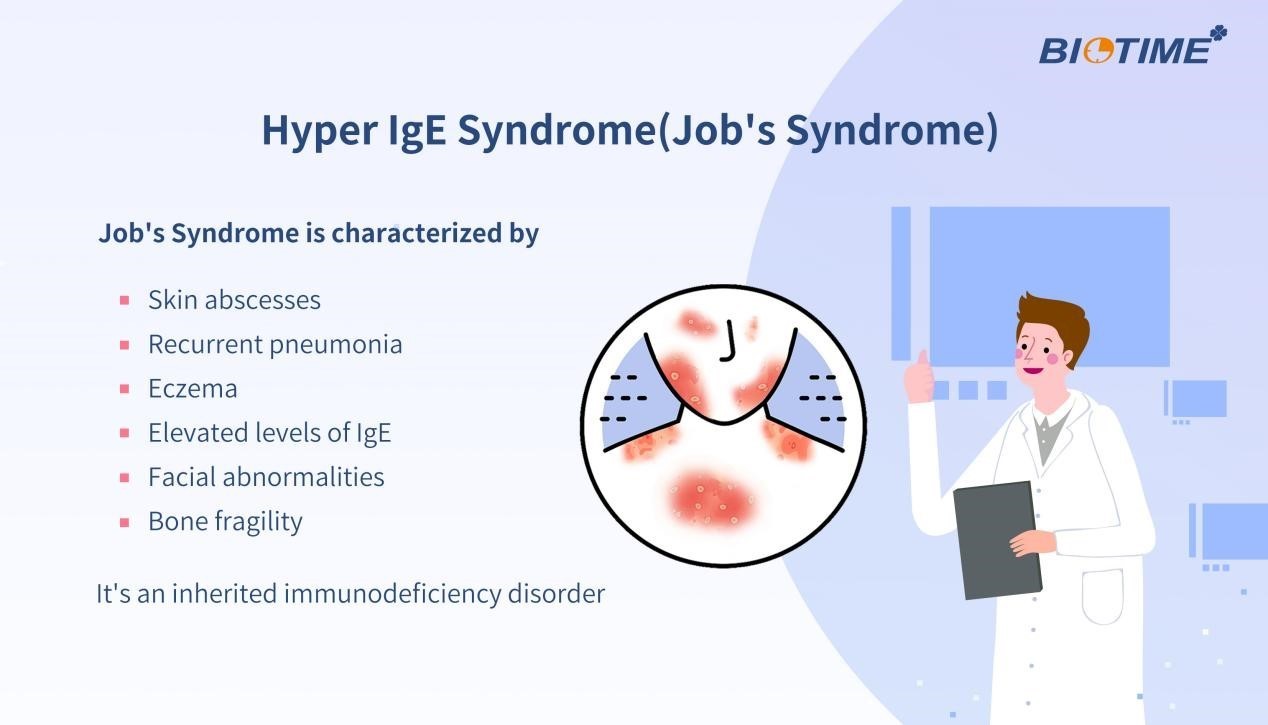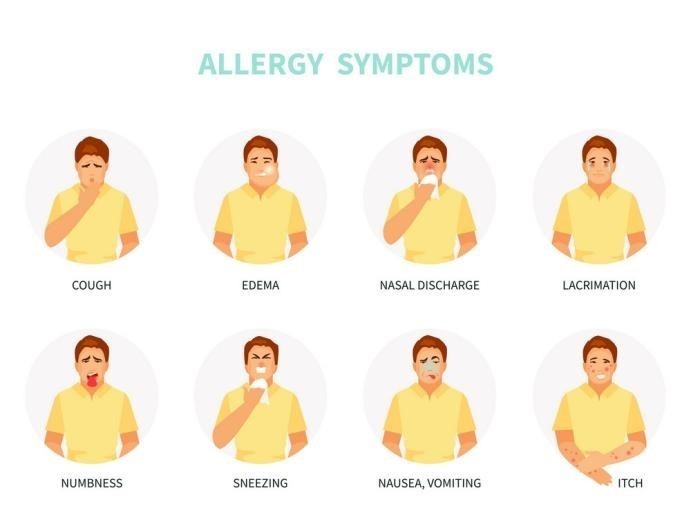Immunoglobulin E (IgE) is an antibody produced by the body's immune system in response to a perceived threat. It is one of the five types of immunoglobulins (A, G, M, D, and E) and is usually found in very small amounts in the blood. The total IgE test can be used to help screen and detect allergic diseases. It measures the total amount of immunoglobulin E in the blood.
Immunoglobulin is a protein that plays a key role in the human immune system. They are produced by specific immune cells called plasma cells. Immunoglobulins are produced against bacteria, viruses, and other microorganisms and substances that are recognized as "non-self" or provide harmful antigens to the immune system.

Elevated concentrations of total immunoglobulin E (IgE) can be found in a variety of clinical diseases, including allergic diseases, certain primary immune deficiencies, infections, inflammatory diseases, and malignant tumors, and to a lesser extent, are related to the immunity of parasites is related. Occasionally, an IgE test may be needed to help diagnose a very rare genetic disease called high immunoglobulin E syndrome (Job syndrome). People with this disease usually have significantly higher IgE levels than normal, and may have eczema, recurrent sinus and lung infections, bone defects, and severe skin infections. A large increase in IgE concentration may indicate that a person has inherited this condition.

When a person experiences periodic or persistent symptoms due to an allergic reaction, especially when the underlying allergen is unknown, a total IgE test may be required. Symptoms may include those that indicate involvement of the skin, respiratory system, and/or digestive system, such as:
-Periodic or persistent itching
-Urticaria
-Itchy eyes
-Eczema
-Nausea, vomiting, persistent diarrhea
-Sneezing, coughing, congestion
-Difficulty breathing
-Asthma symptoms: wheezing, difficulty breathing, coughing, chest tightness

Biotime IgE rapid quantitative test kit is in great demand right now. It allows use of different sample material: whole blood, plasma, and serum with results conveniently available, making the process a lot less cumbersome and genuinely helping screen and detect a variety of clinical diseases.
Reference
1. Homburger HA: Allergic diseases. In: Clinical Diagnosis and Management by Laboratory Methods. 21st ed. WB Saunders Company. 2007;961-971
2. Martins TB, Bandhauer ME, Bunker AM, Roberts WL, Hill HR: New childhood and adult reference intervals for total IgE. J Allergy Clin Immunol. 2014 Feb;133(2):589-591
3. Bernstein IL, Li JT, Bernstein DI, et al: Allergy diagnostic testing: An updated practice parameter. Ann Allergy Asthma Immunol. 2008 Mar;100(3 Suppl 3):S1-148
4. Ansotegui IJ, Melioli G, Canonica GW, et al: IgE allergy diagnostics and other relevant tests in allergy, a World Allergy Organization position paper. World Allergy Organ J. 2020 Feb;13(2):100080. doi: 10.1016/j.waojou.2019.100080